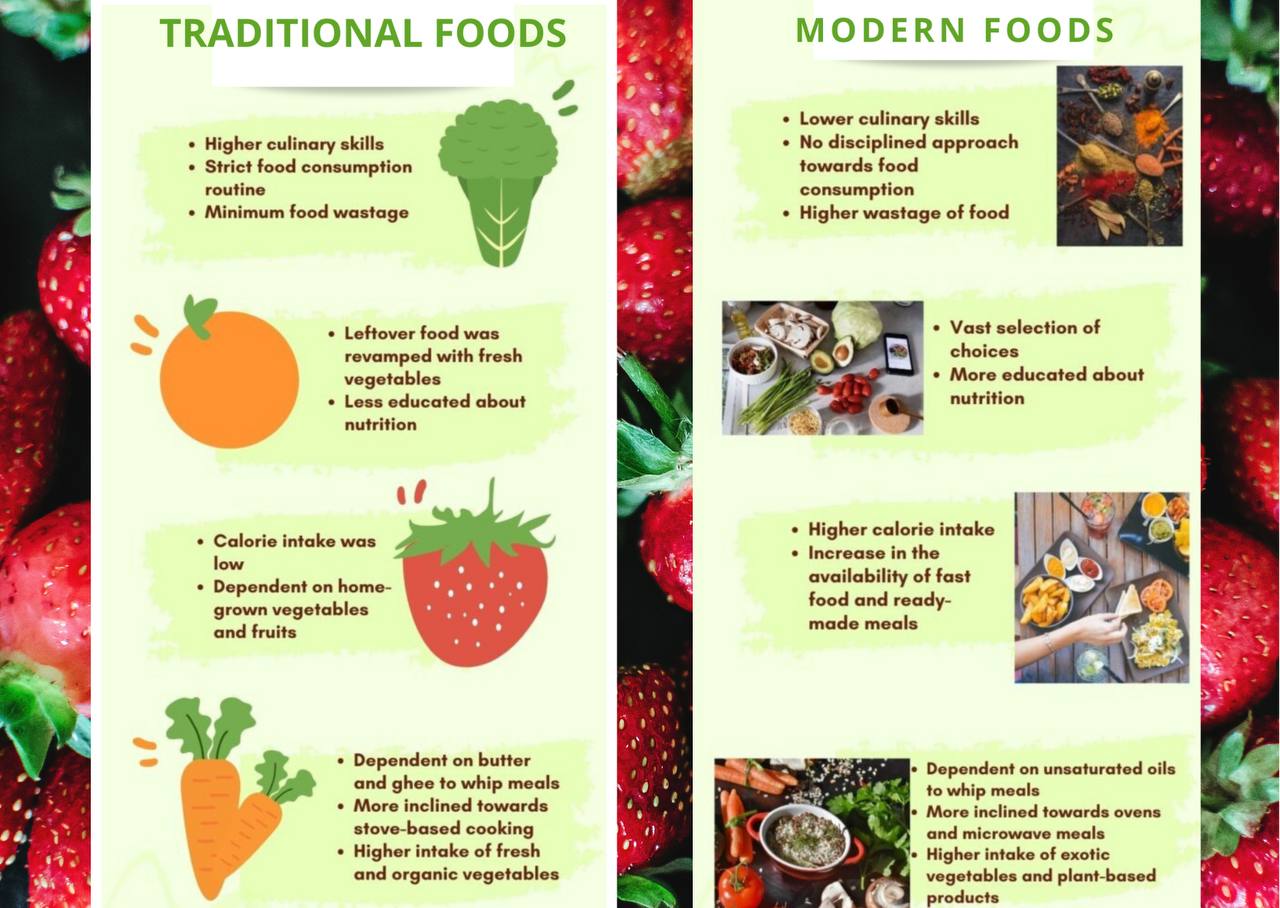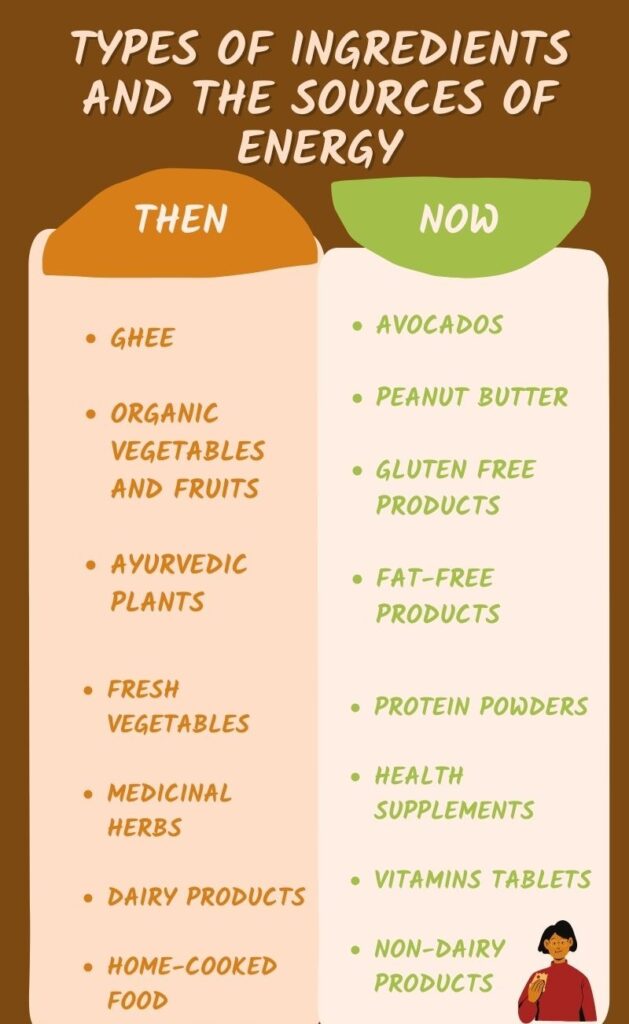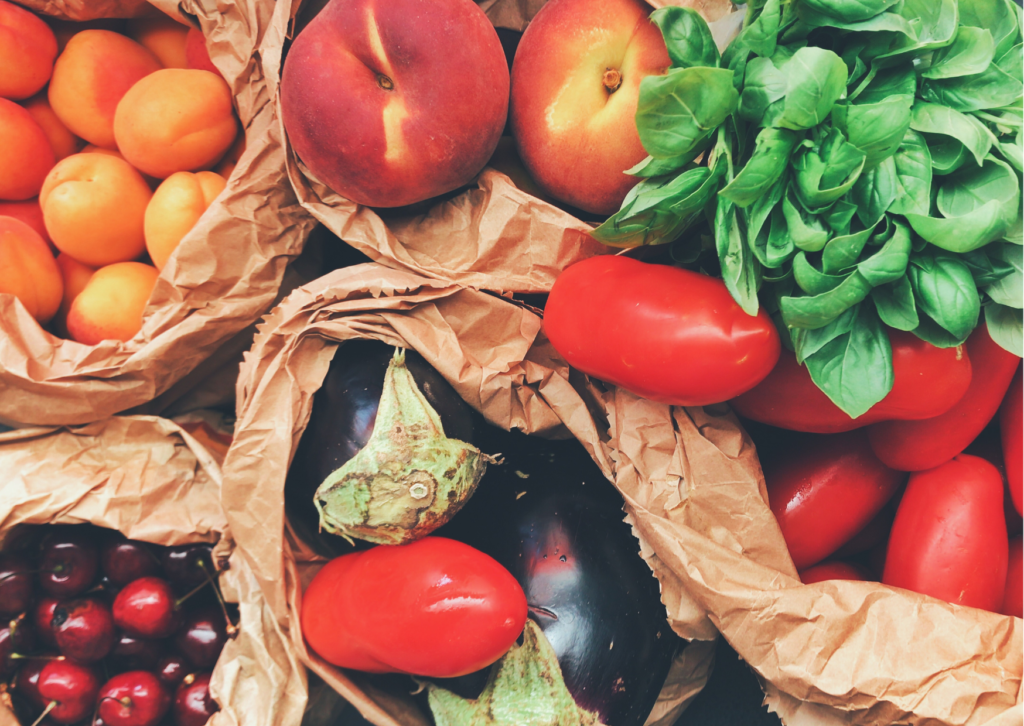According to a research conducted by National Geography on “The Evolution of Diet”, it has been found that the food we choose to eat in the coming decades will have dramatic and complex consequences for the planet.
Today, the way we shop, dine and consume food is dependent on the attitude that we posses towards our nutritional requirements.
To understand how the ‘food menu‘ has transformed over the years, let us trace how eating habits have evolved over time for an ever increasing section of our society.

Foods like avocados, peanut butter, gluten free products, fat-free products, protein powders, health supplements, vitamins tablets or non-dairy products were never a part of our traditional diet, especially in the context of the Indian sub-continent. The earlier generations used to live long and relatively “healthier” lives. On the other hand, ‘a diet plan‘ has suddenly gained importance in the contemporary “healthy” world. Every “health-conscious” person is either calculating calories, nutrients, proteins or skipping meals in order to be healthy.
In the modern lifestyle with both partners working full time, time has become a critical factor. Taking due advantage this scenario, manufacturers have made “convenience” as the primary selling point for their products. Ready-made meals, processed food, fast food, variety of cuisines and instant delivery options have become the norm of our times.
Here is a quick take on the star ingredients consumed then and now…


“Weight, diet and fitness have become more important as compared to the earlier times”, says Mrs. Sangita Rane, Demonstration Officer at Women and Child Development Department, Food and Nutrition Board, Government of India. She states that in earlier times a basic amount of exercise was a part of everyone’s life. Sedentary lifestyles, unusual eating habits are the prime reasons due to which people have attracted a lot of disorders commonly known as lifestyle diseases. As a result, people nowadays have to pay special attention to diet, weight management and gym driven fitness. Healthy eating totally depends on one’s awareness and knowledge.
“People have also developed a taste for precooked ‘comfort foods’ which keeps them away from home cooked food. Fast food is easily accessible and cheaper. To live a green lifestyle, planning your diet is very important. A simple way is to decide what you will be eating for a week. Plan all your meals for a week, make a timetable and buy necessary groceries. Here 80% of your work is done. Rest 20% can be done by trying out simple and quick recipes, eating fruits and nuts etc. Secondly, sustainable way of living is also important for the holistic development of the society. It is our moral responsibility to invest out time and money in things that would help our society and our environment to become better”.
– Mrs. Sangita Rane
Edited by: Raghujit S. Randhawa

